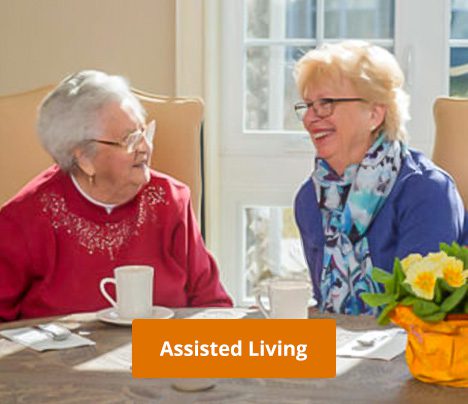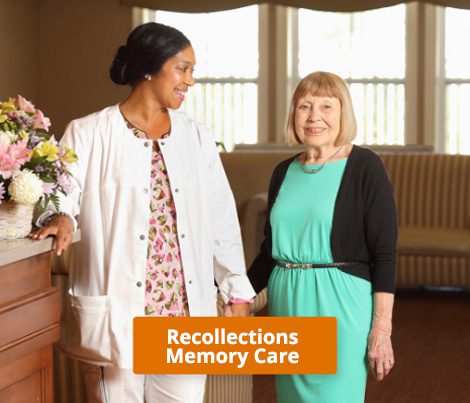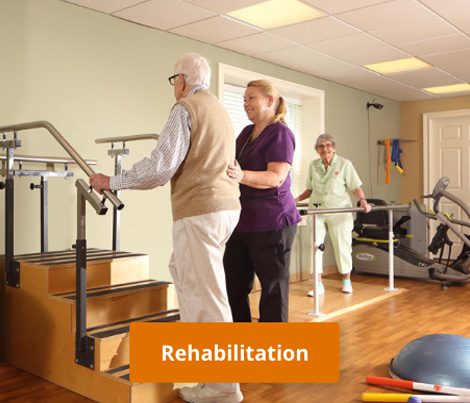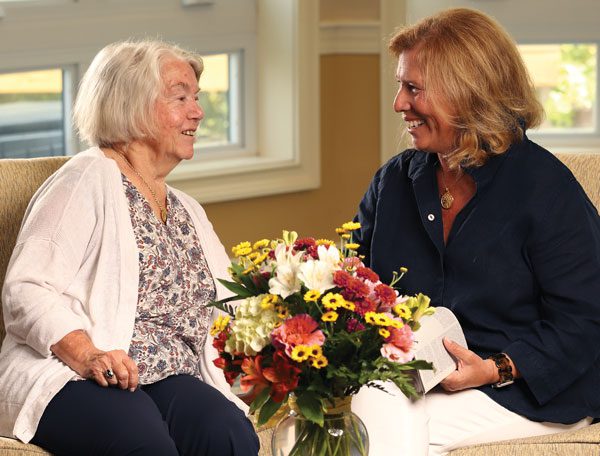Keeping Seniors Safe Online: 8 Tips for Caregivers
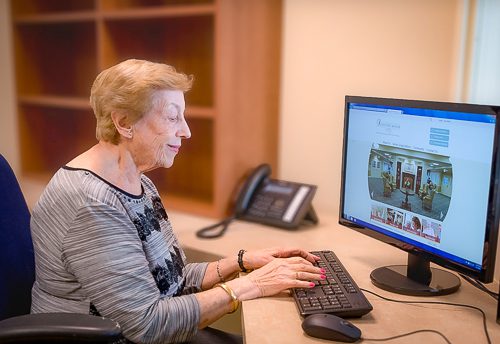
Plus, see our online safety basics guide for seniors.
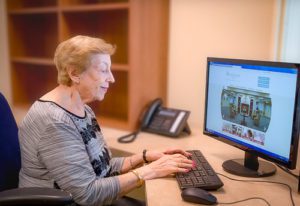 More seniors than ever are online, and that’s good news! Seniors have even more ways to stay in touch with friends and family, to learn, and to be entertained.
More seniors than ever are online, and that’s good news! Seniors have even more ways to stay in touch with friends and family, to learn, and to be entertained.
At the same time, seniors are also more likely to be targets of online scams. Just as you look after your loved one’s physical and mental health, you can look after their online health, too.
Learn more with our eight tips to help keep seniors safe online. Plus, we’ve included an online safety basics guide that you can share with your senior loved ones.
8 Tips for Caregivers: Keeping Your Loved Ones Safe Online
As a caregiver, looking after your loved one’s online safety is an important part of helping them stay well. Here are ways you can support your loved one so that they are safer online.
- Keep a record of their most important passwords.
- Make sure their devices are up to date with current operating systems and app versions.
- Encourage them to ask you if they’re ever unsure about something they’re seeing online, including suspicious emails or messages on social media.
- Check their social media privacy settings. These change frequently and can be tricky to find. You might also view their social media profile from time to time to see who is interacting with them.
- If you have access to their bank and credit card statements, review them for suspicious charges.
- If your loved one mentions new online friends, gently inquire about how they met and the nature of the friendship.
For seniors with memory impairment:
- If your loved one is experiencing mild memory loss or cognitive impairment, consider using parental controls on their devices to limit purchases and to limit access to sites that may leave them vulnerable.
- Phones and tablets designed for seniors are also a friendly and safe option. The simplified design benefits both seniors who are less comfortable with technology, and those who have mild to moderate memory impairment.
Following are online safety basics that you can print and share with senior loved ones.
Online Safety Guide for Seniors
Enjoy your time online safely! Here’s what seniors should know about email, common scams, social media, and more.
When it comes to email, the motto “when in doubt, throw it out” definitely applies!
- Delete phishing emails. A phishing email is a fake email that appears to be from a bank, government agency, or well-known business, asking for your personal information, such as passwords or account numbers. They may look very convincing. If you’re unsure whether an email is legitimate, contact the institution directly.
- Avoid downloading email attachments from people you don’t know.
- If someone you know sends you a message that doesn’t seem quite right, ignore it or get in touch with them directly.
Scams
If it seems too good to be true, it probably is. Be aware of these three common scams:
- Messages claiming you’ve won a prize and must pay a fee or enter banking information to claim it.
- Online “friends” or suitors who ask for money.
- Calls or messages claiming your computer has a virus and asking for payment to fix it.
Online Shopping and Banking
Shopping and banking online are generally safe when you take precautions to protect your information.
- Only shop from reputable, well-known websites.
- Use multi-factor authentication (sometimes abbreviated MFA or 2FA) for added security when logging into banking or shopping accounts. This means you’ll get a one-time code sent to your phone or email to verify after you sign in. Many sites require this.
- Do not save credit card details on unfamiliar websites.
- Do not use a debit card for online purchases. Instead, use a credit card with a clear policy for disputing charges, should the need arise.
- Monitor your bank and credit card statements for suspicious transactions.
- Use passwords that would be hard for anyone else to guess. “Strong” passwords have a mix of numbers, upper- and lower-case letters, and symbols.
- When you write down passwords, store them safely away from your computer or phone.
Social Media and Personal Information
Think of social media like the evening news. Avoid posting anything you wouldn’t want to see broadcast on television!
- Adjust privacy settings so only trusted friends and family can see your posts. Privacy settings can be tricky and change frequently.
- Avoid posting sensitive information, like your address or financial data.
- Be cautious of friend requests from unknown people.
- Do not share personal or financial information in private messages.
With a few precautions, everyone can enjoy their time online learning and connecting with others. Share this guide, and see our other great online resources, including information about caregiving and senior health on our blog, plus video resources for caregivers and seniors.
Learn More About Why Families Rely On Sunnyside Manor
When you have questions about senior living, we are here to help. Sunnyside Manor offers assisted living, memory care, and skilled nursing and rehabilitation. Learn more about Sunnyside Manor’s resources for caregivers. Whether you’re looking for short-term support or a longer-term plan, begin with our “Getting Started” guide. Please call us at 888-696-2052 to speak with a senior living expert.
Sunnyside Manor, located in Wall NJ, is the area’s premier family-owned senior living community. The community features three distinctive neighborhoods: Independence ‘Plus’ Assisted Living, Recollections Memory Care, and Long-Term Care & Short-Term Rehabilitation. Respite stays and palliative care are available in all neighborhoods.

